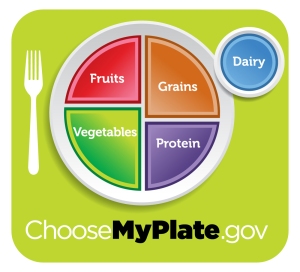How Much Do You Know About Sunscreen?
August 6, 2013Life Experiences with Social Anxiety
September 3, 2013 While the end of break quickly approaches, along with the dread of 6:00am alarm clocks going off, it is good to take a moment and focus on self-care with transitioning back to the school schedule. Self-care can be defined as “the actions of an individual to increase healthy behaviors and improve the overall balance of routine life.” From the late bedtime Call of Duty gaming sessions to the “fourth meal” Taco Bell munching episodes, most youth struggle with maintaining self care in their every day life. This is not because youth today are “bad kids”, but is more from the biological cues (less inhibited to follow the plan) and the adolescent stage of developing into autonomous, or more independent, people – not to mention the recent addition of the many tempting arenas of self expression and connection that come alive from 9:00pm through 3:00am (e.g. twitter, Facebook, Xbox live).
While the end of break quickly approaches, along with the dread of 6:00am alarm clocks going off, it is good to take a moment and focus on self-care with transitioning back to the school schedule. Self-care can be defined as “the actions of an individual to increase healthy behaviors and improve the overall balance of routine life.” From the late bedtime Call of Duty gaming sessions to the “fourth meal” Taco Bell munching episodes, most youth struggle with maintaining self care in their every day life. This is not because youth today are “bad kids”, but is more from the biological cues (less inhibited to follow the plan) and the adolescent stage of developing into autonomous, or more independent, people – not to mention the recent addition of the many tempting arenas of self expression and connection that come alive from 9:00pm through 3:00am (e.g. twitter, Facebook, Xbox live).
Self-care can be broken up into several categories including sleep, nutrition, exercise, health care, hygiene, spirituality, and others. Young adults and youth are particularly vulnerable to poor self-care when transitions in their routines occur. The mental and physical demands from transitioning from break to the school schedule are a major stressor in the lifestyle flow of youth.
Simple chats and some forethought around this change can be helpful not just for parents looking to get the youth out the door to catch the bus, but also for the youth themselves to better enjoy the school day and perform at a higher level overall. Discussions can include the sleep/wake cycle shift, looking into more healthy eating habits (as breakfast won’t happen at 11:00am anymore and the body can run better with some morning fuel), and getting a check-up at the school based health center before the rush. With some slight self-care tweaks, the transition from break to the school schedule can be much easier and healthier.
The young adult’s ideal sleep amount is 9-10 hours of sleep each night for preventing health risk behaviors (see http://ow.ly/nxDDh). This means that for excellent sleep hygiene, or healthy sleep patterns, for the 6:0am wake up time, youth should be asleep at 8:00pm. That’s not realistic for youth today; however, highlighting the discrepancy between their summertime sleep/wake hours and their required wake time for school with a supportive, nonjudgmental tone could open the door to some problem solving. If they are up for it, most teens can benefit lots from individually tweaking their own sleep time effectively with moving back the sleep/start time 15 minutes nightly. For other sleep tips look here (http://depressiontoolkit.org/takecare/sleeping_better.asp) or watch this video that also has a focus on how sleep can impact mood (http://depressiontoolkit.org/expert_advice/sleeping_well.asp)
CONs:
- It can be really boring lying in bed without texting or screen time (TV/tablet/etc)
- Going to bed isn’t hype… and hype is probably still happening elsewhere
- The sleep shifting is done during the end of break and it’s tough to compromise with those in vacation mode
PROs:
- Major positive results for minimal change in lifestyle
- Decreased health risk behaviors
- No cost
- Don’t look dead tired the week back
Tweaking and improving eating habits to be healthier can have a major impact on overall wellness. Preparation steps to do so for the end of break can be as simple as arranging some bags of veggies or fruit in the fridge to grab on the go, stopping late night meals a few days before the end of break, grabbing a low fat granola bar when running out the door for breakfast, and avoiding caffeine by packing healthy snacks like whole grain cereal or an apple as an alternative to the pop machine. Also having non-caffeinated beverages like water readily available improves overall nutrition and assists in the goal of increasing sleep hygiene.
CONs:
- Requires that extra 10 seconds in the morning to grab food when already 60 seconds late
- A little baggie of veggies looks less cool than a mountain dew
- Not as tasty as other less health options
PROS:
- Saves money
- Increased alertness and performance overall
- Decreased fatigue
Health Care:
Getting a check-up at your RAHS school-based health center can be helpful for a variety of reasons: sports physicals, vaccinations, and mental health and/or dietician services to name a few. Schedule in advance to beat the rush with coming back from break.
To schedule a visit at your health center, call us. To get the contact information go to our website and select your health center.
Related articles
- 10 Tips for Better Sleep (visual.ly)



